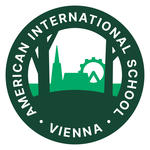Public universities (ÖffentlicheUniversitäten)
There are 22 public universities in Austria. Higher education institutions offer a wide range of academic subjects. Students are often encouraged to do research and take classes in other subjects outside of their disciplines, this is one of the main components of the university philosophy. On the other hand, Austria’s technical and medical universities focus on specialized education in a variety of disciplines. Aside from these, there are also six arts universities in Austria with programs in music, fine arts, and visual arts and design.
For EU nationals, tuition at public universities is free, while international students can expect to pay €360 to €720 per semester, depending on the university. Though the most common language of instruction is German, there are a growing number of programs offered in English, for which you can find a list here .
Private universities (Privatuniversitäten)
There are 13 accredited private universities in Austria offering unique undergraduate and graduate programs. There are around 10,000 students enrolled in private institutions and, because of their smaller size, students receive a more personalized academic experience. Private universities also offer many globally focused programs in English aimed at attracting international students. For example, the Webster Vienna Private University affords students the opportunity to pursue a degree accredited in both the US and Austria.
Private universities have their own specific tuition fees, which start at €1,000 and can be up to around €40,000 per year. The admission process for public and private universities is the same, in that the basis for admission is a secondary school certification.
Universities of applied sciences (Fachhochschulen)
There are 21 universities of applied sciences in Austria offering programs for students interested in IT, healthcare management, telecommunications, and environmental or industrial management. The spots in these programs are usually more limited, and students may have to complete an entrance exam to be accepted. Their curricula are meant to prepare students for specific occupations and usually include practical training or job-based internships, and there are more than 80 degree programs offered in English.
Universities of applied sciences decide independently whether to charge tuition fees. Currently, most require EU and non-EU students to pay a tuition fee of around €363 per semester.
Teacher Education Colleges (Pädagogische Hochschulen)
There are 17 Austrian university colleges of teacher education, nine of which are state run and five which are private. These offer, among other bachelor’s and master’s degrees, a three-year Bachelor of Education degree with teaching qualifications for primary and secondary schools. International students hoping to work in Austria after graduation may benefit from a degree from one of these university colleges, though these credentials may not be transferable to other countries.
How to apply
Austria is known for having an equal and open higher education system where admission to universities is based on secondary school certifications. For international students applying, the following requirements have to be met:
Certificates and diplomas (Reifezeugnis)
- The applicant must have a secondary school diploma that can be considered equivalent to an Austrian Matura examination certification, or can show proof of completion of a three-year (minimum) study at another higher education institution.
- The certification must be sufficient for acceptance onto the desired course of study at a university in that country in which it was acquired.
- In addition, the applicant may have to prove sufficient knowledge of German, though this depends on the program. This may include an examination.
Important: As an international student, the deadline for the registration for the following semester is the 1st of September or the 1st of February every year .
The following documents must usually be submitted for bachelor’s programmes:
- A valid passport
- A-levels, high school diploma or equivalent secondary school leaving certificate
- Transcript with grades from the last school year
- German language proficiency
- A color photograph
- Proof of sufficient financial means to cover one’s living costs for 12 months in advance (for students up to 24 years of age: €491.43/month; for students over 24 years of age: €889.84/month). This may include a bank savings book, an account in Austria, or a declaration of guarantee from a person living in Austria.
For masters programme:
Completion of minimum 6 semesters (3 years) and 180 ECTS specializing in the relevant Bachelor degree.



